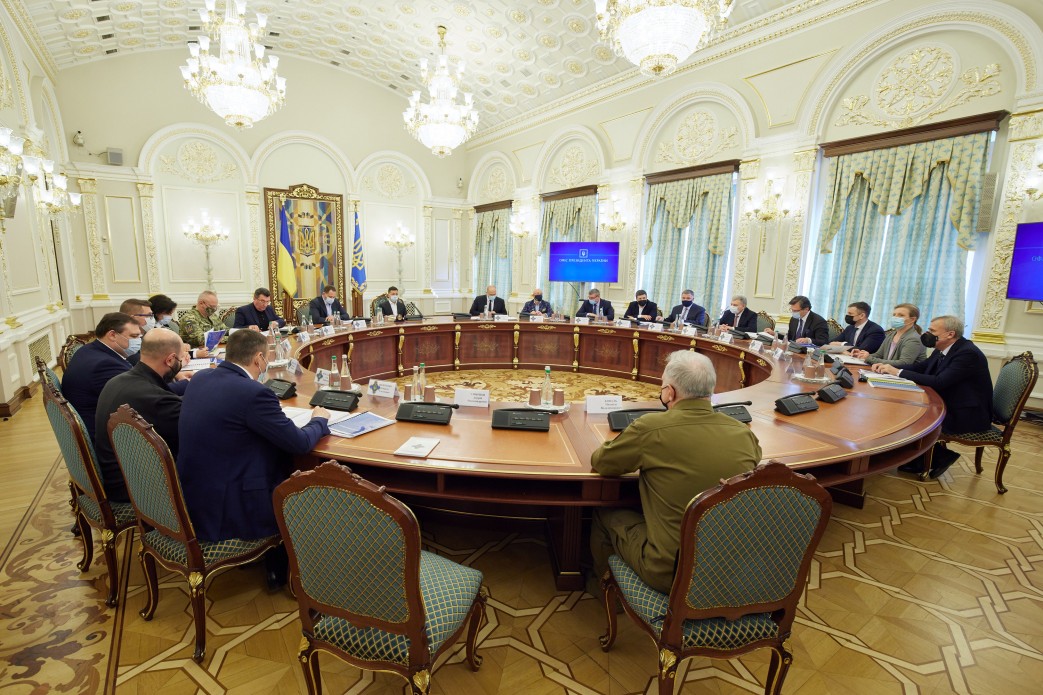According to Ukrainian legislation, sanctions can be applied to people involved in terrorism. When the first list of smugglers was sanctioned, Zelenskyy explained the connection between smuggling and terrorism:
"This is economic terrorism against Ukraine. According to experts, the losses due to smuggling reach UAH 300 bn [about $11 bn], which was not received by the state budget.”
Among the 79 sanctioned legal entities, 11 are registered in Russia or occupied Crimea; the rest are registered in Ukraine.
Out of them, the most notorious sanctioned Ukrainian individuals is Vadym Alperin, known for his involvement in corruption at Odesa customs. With a fortune estimated at more than one billion dollars, he is known to have participated in various criminal proceedings related to smuggling, bribery, and tax evasion.
News regarding sanctions in Ukraine is typically published on Fridays. This process receives extensive media coverage.
In the words of Zelenskyy, “You've probably heard the phrase ‘Black Friday.’ Ukraine has its own version of ‘Black Friday.’ On this day, people who were engaged in a large sale of strategic enterprises of Ukraine, natural resources, high positions, traded security, stability and the future of our country, get what they deserve.”
On 9 April Zelenskyy issued another decree from the National Security and Defense Council regarding sanctions on exiled president Viktor Yanukovych and his co-conspirators.
This decision against the 12 smugglers was the seventh of its kind made by the National Security and Defense Council in the last two months.
After the first list of sanctioned smugglers was released on 2 April, a group of experts in Ukraine observed dangerous trends.
Criminal proceedings against a few of the sanctioned people have already reached the trial stage. Like regarding Yanukovych and his inner circle, ex-policemen who betrayed the oath and serve in Russian or the occupied territories.
However, a statement of the Kharkiv Human Rights Protection Group stresses that sanctions were also imposed on citizens of Ukraine and Ukrainian legal entities which are working or placed in the territory controlled by the Ukrainian government. There are no court decisions or other decisions regarding them.
According to the statement, “The use of sanctions against citizens of Ukraine who live on territory not controlled by the government of Ukraine undermines the fundamental principles of law, grossly violates the Constitution and international treaties ratified by Ukraine, entails serious threats to human rights and liberties, and has indications of the usurpation of power by the state.”
Additionally, the statement indicates that imposing sanctions against the state’s own citizens is only possible if they live abroad or in the “temporarily occupied territories of Ukraine.” The statement indicates that the state has exhausted means of bringing its own citizens abroad to justice. However, none of the above is relevant for the cases regarding sanctioned Ukrainian smugglers.
“In our opinion, the actions of the President of Ukraine are unlawful and arbitrary because they have created a situation in which the rights of the citizens of Ukraine are significantly restricted without any explanation or reasoning.”
Furthermore, the statement indicates that “repressive measures directed at restricting human rights may amount to ‘criminal accusation,’ according to content published by the European Convention on Human Rights and Fundamental Freedoms.” When the state imposes such measures, it is required to provide several guarantees for the sanctioned person, including the right to a fair trial, protection from unlawful punishment, and the presumption of innocence. In recent cases, however, none of these protections have been provided. This may contribute to future financial losses and reputation challenges for the state.
“The Decree of the President of Ukraine No. 140/2021 based on the decision of the National Security and Defense Council of 2 April 2021 is not only an abuse of power but also has signs of usurpation of power, as the President, in breach of the Constitution of Ukraine, has appropriated judiciary powers,” the statement concludes.
Of all the possible ways to solve these problems, sanctions are considered the easiest. To enact sanctions, it is not necessary either to have a ruling from the court or for parliament to vote on them. In an interview with the Ukrainian service of the RFE/RL, political expert Yevhen Mahda explains the simplicity with which the president enacted these sanctions:
"I understand that Minister of Internal Affairs Arsen Avakov does not lend ‘his’ Ministry of Internal Affairs to Zelensky so that he can use it. The Prosecutor General's Office did not live up to the president’s expectations. The decisions of the National Security and Defense Council are enacted only by a presidential decree. Nothing further is needed," the expert says.
Sanctions benefit Zelenskyy in the form of positive media coverage, on the condition that the sanctions target criminals. However, they do raise the concern that sanctions can easily be applied to Ukrainian citizens, and it remains to be determined whether Zelenskyy will elect to use such sanctions against political opponents.
Maksym Nefyodov, the former head of the State Customs Service, an investment banker, and a deputy of the Kyiv City Council from the Voice party, clarifies that in the decision to sanction smugglers, sanctions were imposed on both intermediaries and transporters.
"If the Security Service of Ukraine knows that they are criminals, then where are the criminal cases, arrests, and seizures of smuggled goods? If it turns out that it does not have such information, then the question arises: how are these lists formed and whether anyone will be included in them tomorrow, and whether someone (for a bribe) will disappear from the list? If we talk about the essence of the list, it lists the cargo operators: these are those who work in the market of delivery of goods and deal with both ‘white’ (customs cleared) and ‘gray’ goods, which provide logistics as legal, and by illegal means."
Nefyodov considers sanctions an oversimplified solution to the problems faced by customs, which Zelenskyy and other officials do not fully understand:
"This is a search for a magic wand that would allow [Zelenskyy] to show improvement without making systematic changes,” Nefyodov says.
Yuliya Marushevska, former head of Odesa customs, considers sanctions a good starting place to solve these problems if it is followed by systematic transformations within the field:
"Smugglers have begun to whiten their reputation, and here they get a ‘black mark’, which they will not get rid of.”





